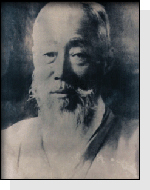- Park In- hwan (1926~1956)
- Park Su- geun (1914~1965)
- Kim Yu- jeong (1908~1937)
- Lee Hyo- seok (pen name Gasan) (1907~1942)
- Kim Dong- myeong (Choheo) (1901~1968)
- Han Yong- un (Buddhist name Manhae) (1897~1944)
- Namgung Eok (pen name Hanseo) (1863~1939)
- Yun Hui- sun (1860~1935)
- Yu In- seok (pen name Uiam) (1842~1915)
- Kim Byeong- yeon (pen name Nango) (1807~1863)
- Nam Gu- man (pen name Yakcheon) (1629~1711)
- Heo Mok (pen name Misu) (1595~1682)
- Heo Gyun (pen name Gyosan) (1569~1618)
- Heo Cho- hui (pen name Nanseolheon) (1563~1589)
- Sinsaimdang (1504~1551)
- Kim Si- seup (pen name Maewoldang) (1434~1493)
- Won Cheon- seok (pen name Ungok) (1330~ ?)
- Lee Seung- hyu (pen name Dongangeosa) (1224~1300)
Namgung Eok (pen name Hanseo) (1863~1939)

He promoted the spread of Mugunghwa (Rose of Sharon), our national flower,
and was a fighter for national independence from Japan´s colonial rule.
He was also an educator who inaugurated the Hwangseongsinmun Newspaper. His pen name was Hanseo.
In 1884, he graduated from Dongmunhak, an English school, started working in civil service as a royal interpreter, and, in July 1896, founded Dongniphyeohoe (Independence Association) together with Seo Jae-pil, Lee Sang-jae and others.
In September 1898, he launched the Hwangseongsinmun Newspaper, and took the position of president.
When he disclosed the ugly desire of Japan to invade and rule Korea, he was severely tortured by the Japanese. He was assigned to serve as the magistrate of Yeongyang-gun (county) in February, 1906. In July of the following year, he established the Hyeonsan School on the mountain in back of Dongheon and accomplished nation-saving education. While he was teaching at Baehwa School in 1910, he strove to foster patriotism among students and expand women´s rights.
In 1918, he went down to his hometown at Mogok-ri, Seo-myeon, Hongcheon-gun, and built a church and a school. He then campaigned for spreading Mugunghwa (Rose of Sharon, the national flower,), personally authored history books titled Dongsaryak, Joseon-iyagi, etc., thus educating people and promoting the national spirit.
In 1933, he formed a secret independence movement organization named Sipjadang and was active. He was arrested and imprisoned for eight months. He was harshly tortured by the Japanese police and was eventually martyred for the country.
The government, in memory of his feats, posthumously awarded him the Civil Medal of Independence in 1997, and the Medal of the Order of Merit for National Foundation, in 1990. He was selected as the person of the month in January 2000 by the Ministry of Culture and Tourism.
In 1884, he graduated from Dongmunhak, an English school, started working in civil service as a royal interpreter, and, in July 1896, founded Dongniphyeohoe (Independence Association) together with Seo Jae-pil, Lee Sang-jae and others.
In September 1898, he launched the Hwangseongsinmun Newspaper, and took the position of president.
When he disclosed the ugly desire of Japan to invade and rule Korea, he was severely tortured by the Japanese. He was assigned to serve as the magistrate of Yeongyang-gun (county) in February, 1906. In July of the following year, he established the Hyeonsan School on the mountain in back of Dongheon and accomplished nation-saving education. While he was teaching at Baehwa School in 1910, he strove to foster patriotism among students and expand women´s rights.
In 1918, he went down to his hometown at Mogok-ri, Seo-myeon, Hongcheon-gun, and built a church and a school. He then campaigned for spreading Mugunghwa (Rose of Sharon, the national flower,), personally authored history books titled Dongsaryak, Joseon-iyagi, etc., thus educating people and promoting the national spirit.
In 1933, he formed a secret independence movement organization named Sipjadang and was active. He was arrested and imprisoned for eight months. He was harshly tortured by the Japanese police and was eventually martyred for the country.
The government, in memory of his feats, posthumously awarded him the Civil Medal of Independence in 1997, and the Medal of the Order of Merit for National Foundation, in 1990. He was selected as the person of the month in January 2000 by the Ministry of Culture and Tourism.
최근 업데이트 2023-01-10


